Connecting Cultures Through Literature: The Romanian Launch of Han Kang’s We Do Not Part
2025-10-31On October 29, the beauty of Korean literature once again found its way into the hearts of Romanian readers during the launch of Han Kang’s novel We Do Not Part at the Humanitas Bookstore in Bucharest. The event marked not only the introduction of a new Korean literary masterpiece to Romanian audiences but also a celebration of cultural dialogue between two nations.
The Romanian translation, carried out by Professor Diana Yüksel, Head of the Department of Korean Language at the University of Bucharest, was presented in the presence of H.E. Rim Kap-soo, Ambassador of the Republic of Korea to Romania. The event also featured writer and cultural journalist Marius Constantinescu, Diana Peca, coordinator of the Korean Center at the Romanian-American University, and the coordinator of the Korean Reading Club, and was moderated by Denisa Comănescu, the Director of Humanitas Fiction Publishing House.
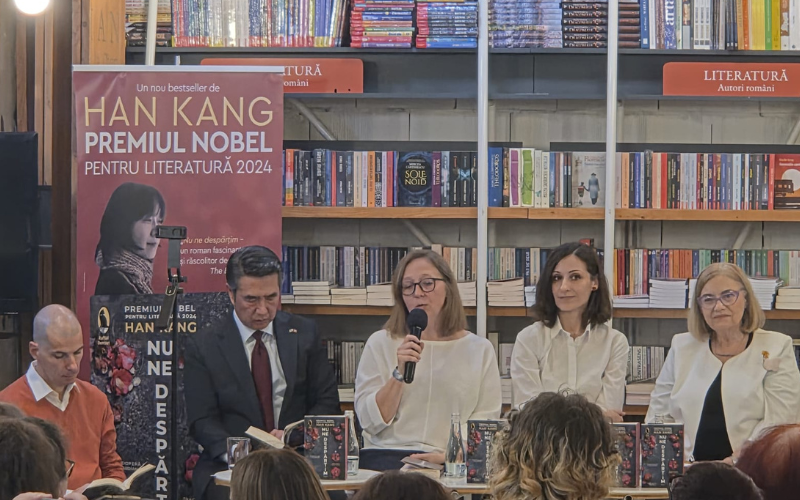
In his opening remarks, H.E. Ambassador Rim Kap-soo emphasized the significance of Han Kang’s work and praised Professor Yüksel’s continuous efforts in bringing Korean literature closer to Romanian readers. He also highlighted that 2025 marks the 20th anniversary of the founding of the Korean Language and Literature Department at the University of Bucharest, an occasion that reflects the growing interest in Korean studies among young Romanians.
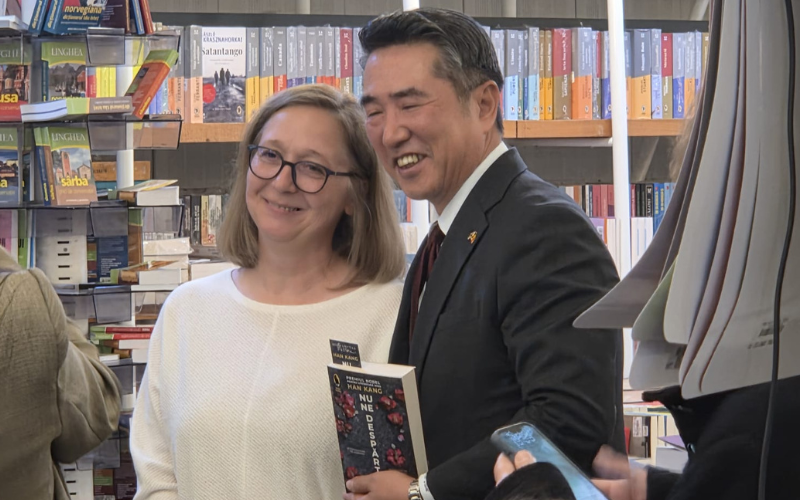
Professor Diana Yüksel, who has translated several other works of Korean literature, spoke about the linguistic and emotional challenges of transposing Han Kang’s prose into Romanian. She described the dialect from Jeju Island as one of the most demanding aspects of her translation process. Her work continues to serve as a bridge connecting Korean authors and Romanian readers, helping them meet across words and continents.
Cultural journalist Marius Constantinescu offered a poetic interpretation of Han Kang’s novel, describing it as “a winter of the soul and a winter of history.” He reflected on how We Do Not Part evokes coldness and fragility, with snow as a symbol of transformation and melancholy, “a metaphor for a grave,” as he put it. Meanwhile, Diana Peca discussed the novel’s delicate yet intense nature and its deep historical roots in the tragic events of 1948–1949 on Korea’s Jeju Island. Moreover, she also reflected on the duality that defines Korea, a country of modernity, pop culture, and innovation, yet profoundly anchored in its history and collective memory. Concepts such as jeong (정), the invisible emotional bond that ties people together, and han (한), a quiet, unresolved sorrow embedded in Korean identity, were explored as key elements of Han Kang’s art.
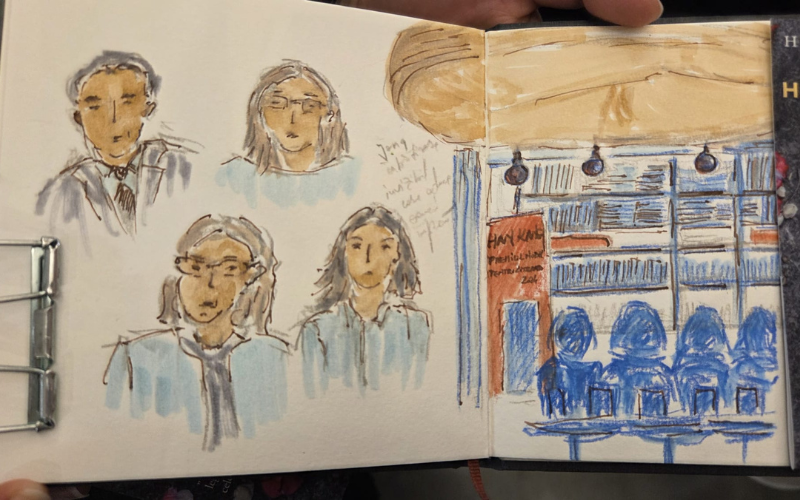
The event concluded with a live Korean calligraphy session, where attendees could write their names or words inspired by the novel using brushes and ink. The KJ Center warmed guests with Korean tea and sweets, creating a cozy atmosphere that perfectly matched the novel’s cold spirit.
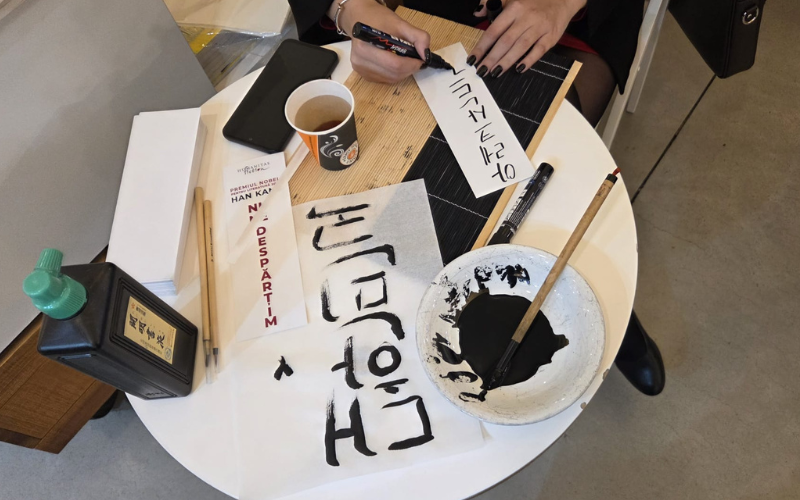
As a graduate of Korean Language and Literature, I found this event deeply meaningful. It reminded me of my early years studying Korean at the Babeș-Bolyai University in Cluj-Napoca, when I first discovered how literature can transcend borders and connect people. Seeing a growing audience of Romanians reading, discussing, and understanding Korean literature fills me with pride.
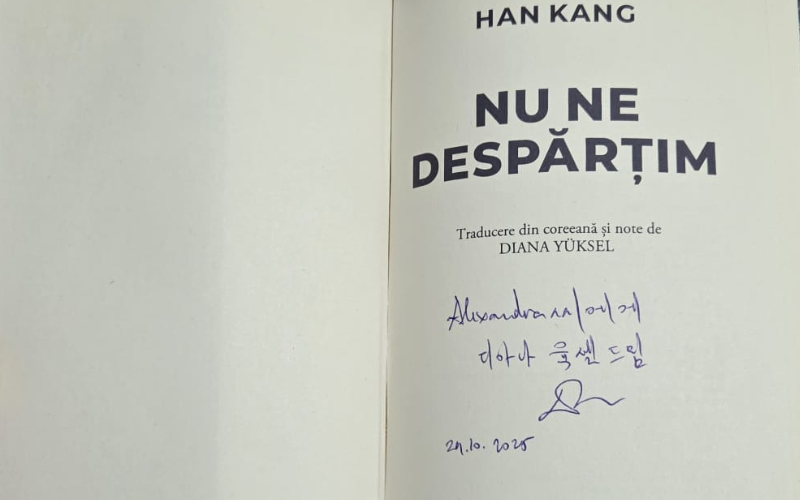
Through events like this, we witness how literature serves as a bridge between two distant cultures, helping Romanians and Koreans understand one another not only through words but through artistic expression.
At the end of the evening, many guests left the bookstore with Han Kang’s books, We Do Not Part, The Vegetarian, Human Acts, and The White Book, in their hands and joy in their hearts. As Professor Yüksel signed copies, it became clear that Korean literature has found a lasting home in Romania.
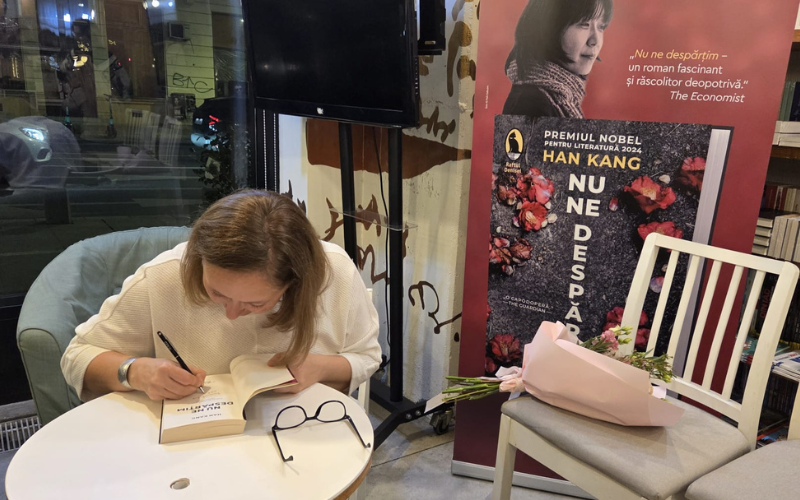
How about this article?
- Like2
- Support1
- Amazing6
- Sad0
- Curious1
- Insightful0


